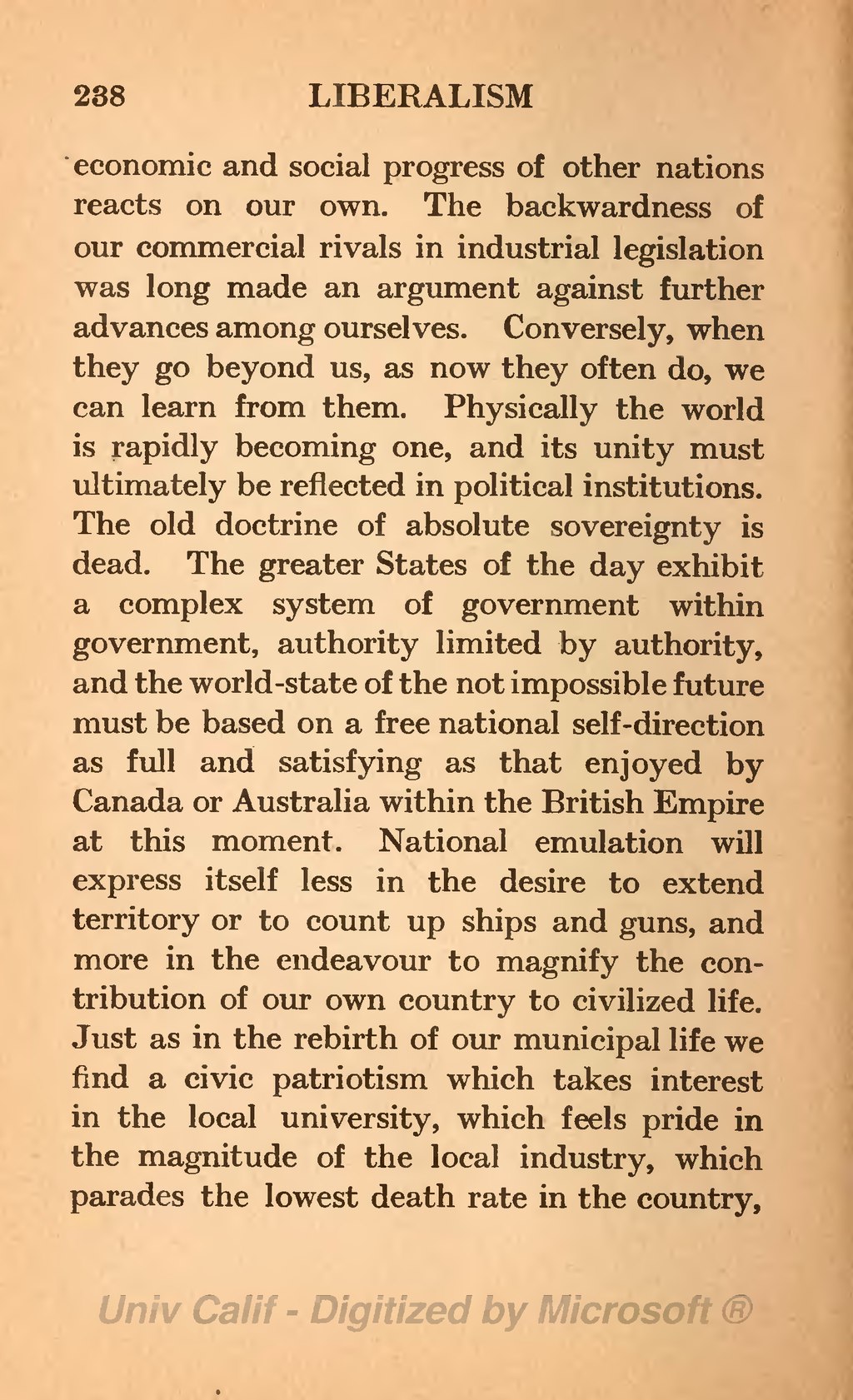economic and social progress of other nations reacts on our own. The backwardness of our commercial rivals in industrial legislation was long made an argument against further advances among ourselves. Conversely, when they go beyond us, as now they often do, we can learn from them. Physically the world is rapidly becoming one, and its unity must ultimately be reflected in political institutions. The old doctrine of absolute sovereignty is dead. The greater States of the day exhibit a complex system of government within government, authority limited by authority, and the world-state of the not impossible future must be based on a free national self-direction as full and satisfying as that enjoyed by Canada or Australia within the British Empire at this moment. National emulation will express itself less in the desire to extend territory or to count up ships and guns, and more in the endeavour to magnify the contribution of our own country to civilized life. Just as in the rebirth of our municipal life we find a civic patriotism which takes interest in the local university, which feels pride in the magnitude of the local industry, which parades the lowest death rate in the country,
